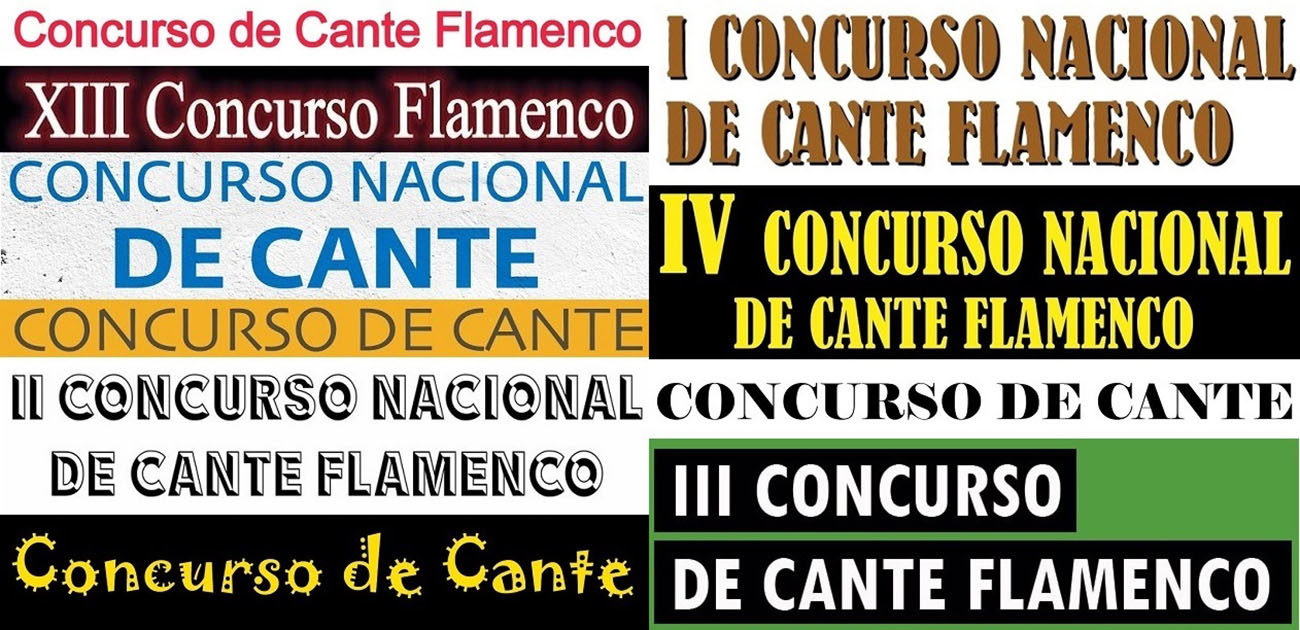The Festival de La Unión calls for a debate
Once again, I want to speak about the need to change flamenco contests (or “fighting pits” as I call them). They are not as necessary as they were thirty or forty years ago and, although they don’t have to disappear completely, it wouldn’t be a bad idea to sit down and consider whether there should be as many of them,

Once again, I want to speak about the need to change flamenco contests (or “fighting pits” as I call them). They are not as necessary as they were thirty or forty years ago and, although they don’t have to disappear completely, it wouldn’t be a bad idea to sit down and consider whether there should be as many of them, to start, or if they should be relegated to the dustbin of history. I say this with this year’s Festival de Las Minas in mind, with its results, the tantrums of the losers and the uncertain future now facing the winners, particularly the winner of the Lámpara Minera award, María José Carrasco, from Palacios y Villafranca, and the winner of the Bordón Minero award, Agustín Carbonel El Bola, from Madrid, already a veteran of toque.
So much money, work and effort, for that? Doesn’t this create more disappointment than excitement? Flamenco contests has a purpose if they try to discover and promote new talent. What has been discovered by this year’s contest of La Unión? I didn’t attend the final, but I’ve read many comments in the social networks, and it looks like, for starters, the overall quality was very low. Since I didn’t attend, I don’t want to dwell into the particular qualities of each contestant, because that’s the job of those who went to analyze this event. I’ve attended this contest many times, as jury and flamenco critic, so I’m entitled to voice my opinion about it, and I’ve done it many times, even as I’ve increasingly lost interest in this event, and in all flamenco contests in general.
The last time I wrote about contests I got in trouble with some veteran cantaores who keep taking part in them to make money. Yes, to make money. For the dough. Everyone is free to make a living as they can, and if they’re allowed to do it, then fair enough. Why are cantaores of over fifty years old taking part in such contests? Would they attend them if instead of money they would be given books or records? Thus, the big problem with contests is that they aren’t really focused on discovering new, young talent and promoting them. In most cases, they are organized so there are six months of cante for six thousand euros.
The most important flamenco contest of them all is the one of La Unión and, precisely for this reason, it’s the contest which should start to change. There is a lot of money spent in contests of cante flamenco, and there are lots of artists in dire straits. If the matter is discovering new talent, which was their original purpose, nowadays there are better ways to do this such as, for example, with the social networks and internet. Not long ago I uploaded a video of a 12-year-old kid singing por seguiriya, which I had recorded on my own smartphone, and after two days it had been seen by over thirty thousand people.
I say it again: I have a new idea for a flamenco contest and I’d like to make it happen. How much should we bet that none of the contests’ organizers aren’t interested at all?
Translated by P. Young






